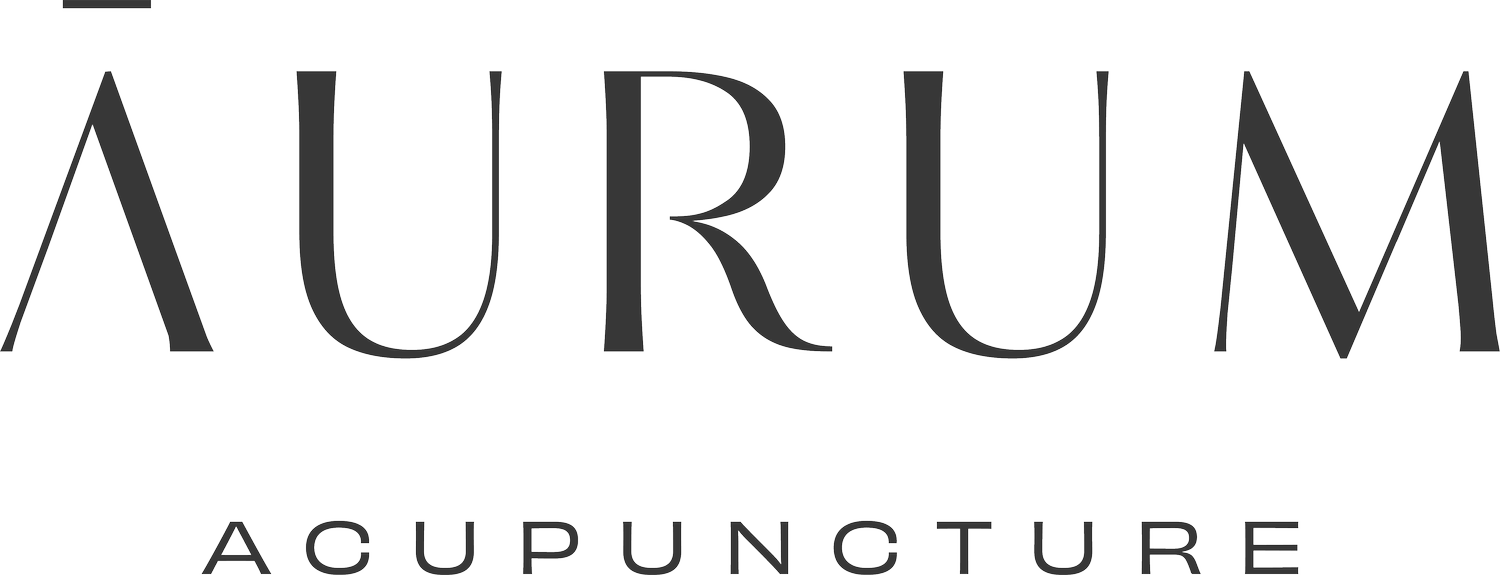During the cold dreary days of deep winter it’s easy to want to hibernate. But do you often feel exhausted, overwhelmed, or unable to recover from stress? Are you waking tired regularly? Do you constantly feel like you need a break? You may be experiencing adrenal fatigue - a term used to describe a condition where prolonged stress overburdens the adrenal glands, leading to chronic fatigue, brain fog, and hormonal imbalances. Or you may simply have low energy because it’s cold out and gets dark early. Whatever the case, you’re not alone. In today’s fast-paced world, maintaining steady energy levels can definitely feel like a challenge.
At Āurum Acupuncture, we believe in harnessing the power of both ancient wisdom and modern science to help everyone feel their best. Let’s explore how to optimize your energy naturally using biohacking, Traditional Chinese Medicine (TCM), and science-backed methods.
What Is Biohacking?
Biohacking is the practice of making small, science-backed lifestyle changes to optimize your body’s performance and health. Think of it as “hacking” your biology to improve energy, focus, and longevity. Popular biohacking techniques include nutrition tweaks, mindfulness practices, and cutting-edge therapies like red light therapy—all aimed at enhancing how your body functions.
The beauty of biohacking is that it empowers you to take charge of your well-being through personalized adjustments that feel right to you. When combined with ancient practices like TCM, the results can be profound.
How Does Traditional Chinese Medicine View Energy?
In TCM, energy is often referred to as Qi (pronounced “chee”)—the vital life force that flows through your body along specific pathways called meridians. When Qi is balanced and flowing smoothly, you feel energized, focused, and vibrant. However, blockages or imbalances can lead to fatigue, brain fog, and poor health.
Acupuncture, a key pillar of TCM, works by stimulating specific points along the meridians to restore the flow of Qi, reduce stress, and promote natural energy balance. Research shows acupuncture can positively impact energy levels by modulating nervous system activity and supporting mitochondrial health—the powerhouse of your cells. (PubMed Study)
Natural Ways to Boost Your Energy
Here are some natural strategies—blending biohacking insights and TCM wisdom—that can help you regain lasting energy:
1. Prioritize Quality Sleep (Circadian Biohacking)
• Biohack Tip: Expose yourself to natural sunlight early in the day to regulate your circadian rhythm. Avoid blue light exposure before bed.
• TCM Insight: Yin and Yang energies influence sleep. Yin is restorative, while Yang is active. Poor sleep often reflects an imbalance of these forces.
2. Optimize Nutrition (Mitochondrial Biohacking)
• Biohack Tip: Focus on whole foods rich in B vitamins, magnesium, and antioxidants to support cellular energy production. Try intermittent fasting to optimize mitochondrial efficiency.
• TCM Insight: Foods like goji berries, ginseng, and ginger nourish Qi and can be incorporated into daily meals for sustained energy.
3. Hydration for Cellular Energy
• Biohack Tip: Start your day with mineral-rich water and consider adding electrolytes for better cellular hydration.
• TCM Insight: Water supports the Kidney system, which is seen as the body’s foundational energy reserve. Staying hydrated helps nourish this vital energy.
4. Cold Therapy and Energy Activation
• Biohack Tip: Cold showers and ice baths can stimulate circulation, improve mitochondrial function, and reduce inflammation for a natural energy boost.
• TCM Insight: Cold exposure is believed to activate Yang energy, which can help counter stagnation and improve vitality when used mindfully.
5. Move Your Body for Energy Flow
• Biohack Tip: Incorporate short bursts of exercise (like HIIT) or gentle movement like yoga to stimulate energy.
• TCM Insight: Practices like Qi Gong and Tai Chi focus on moving Qi through the body, enhancing both physical and mental energy.
6. Reduce Stress (Nervous System Biohacking)
• Biohack Tip: Try breathwork, meditation apps, or vagus nerve stimulation to promote a calm, energy-balanced state.
• TCM Insight: Acupuncture is highly effective for calming the nervous system, balancing stress hormones, and supporting adrenal health.
The Science Behind Acupuncture for Energy
Acupuncture has been shown in clinical studies to regulate the autonomic nervous system, support mitochondrial health, and reduce oxidative stress—key factors in sustained energy levels. A 2014 study published in Evidence-Based Complementary and Alternative Medicine found that acupuncture significantly improved fatigue and energy balance in patients with chronic fatigue syndrome. (PubMed Study)
Why Choose a Holistic Approach?
While quick fixes like caffeine might offer temporary relief, true energy optimization requires a holistic, long-term strategy. Combining biohacking principles with TCM techniques provides a balanced, natural approach to feeling your best.
At Āurum Acupuncture, we specialize in personalized care, blending ancient wisdom with modern science to help you thrive.
Healthcare aligned with nature 🌿





